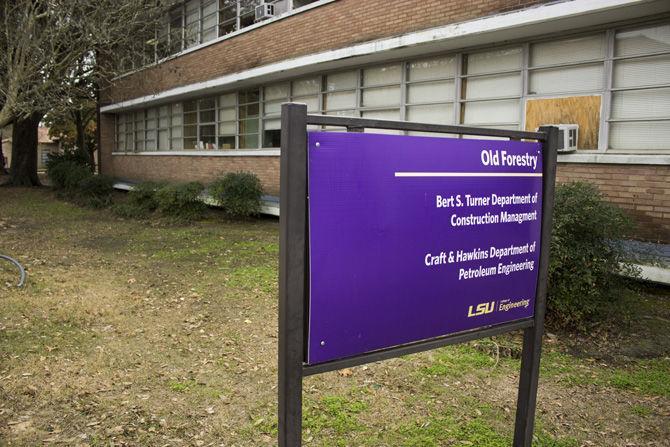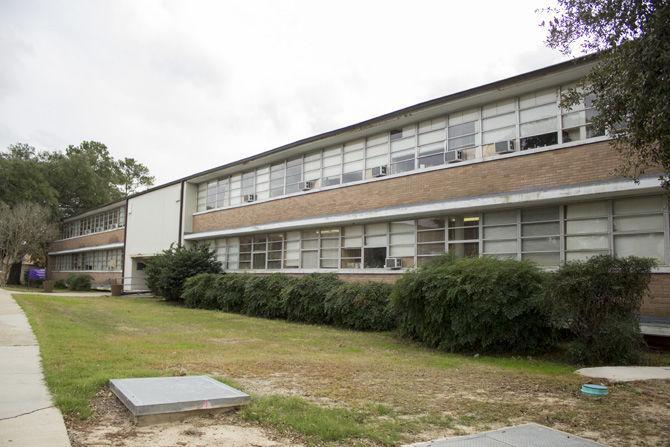Inside the Old Forestry Building lies the Department of Construction Management and its plans for improving the state’s transportation structure.
The plans — which were created by The Transportation Consortium of South-Central States or Tran-SET, a team led by the University in association with several other universities and colleges — won a regional competition, providing them a grant from the U.S. Department of Transportation to establish a regional transportation research center.
The five-year project plans to solve transportation problems by conducting research that will help implement solutions with technology transfer through the $14.25 million grant, said construction management Professor Marwa Hassan, the project leader.
Tran-SET’s main focus is durability and long-term performance. The research focuses on short-term and long-term goals that extend all the way to 2045.
Research will be conducted to assist in reducing congestion, but in terms of the future, there is a strong focus on electric vehicles, solar panels and self-healing materials that repair themselves much like the human body to “take us to the next level,” Hassan said.
Hassan’s main focus for the project is self-healing materials for roads, ports, rails and bridges. When applying electricity to a crack in a bridge made of the material, the heat will cause the material to contract, thus repairing the infrastructure damage.
“We are putting material inside the concrete that is similar to white blood cells,” Hassan said. “These materials are going to react with something inside the concrete to form a solid material to heal the cracks without intervention from us.”
The main problem with asphalt is rotting, which causes bumps and dryness because of aging, she said. Tran-SET will use micro-capsules with rejuvenators inside to reverse the aging process over time.
During the life cycle of the project, Tran-SET will establish a Project Review Committee to evaluate the project’s progress. At the project’s completion, there will be a six-month implementation phase where 10 percent of funds will be spent on technology transfer.
The team has a strong focus on workforce development, integrating not only universities but two community colleges — BRCC and Navajo Technical University — to allow recruitment of new blood into transportation, Hassan said.
The participating universities are Arkansas State University, New Mexico State University, Oklahoma State University, Prairie View A&M University, Texas A&M University, University of New Mexico, University of Texas at Arlington and University of Texas at San Antonio.
“LSU is proud to lend our expertise in transportation and innovation to help solve our state’s transportation issues. With our regional partner institutions and federal support, we can meet the transportation needs of the South,” LSU President F. King Alexander said in a news release.
LSU-led team receives grant to fund transportation research center
January 14, 2017
The Old Forestry Building, home to the Bert S. Turner Department of Construction Management sits on Jan. 13, 2017 just off of South Stadium Road. The Bert S. Turner Department recently received a grant for its transportation research center.









